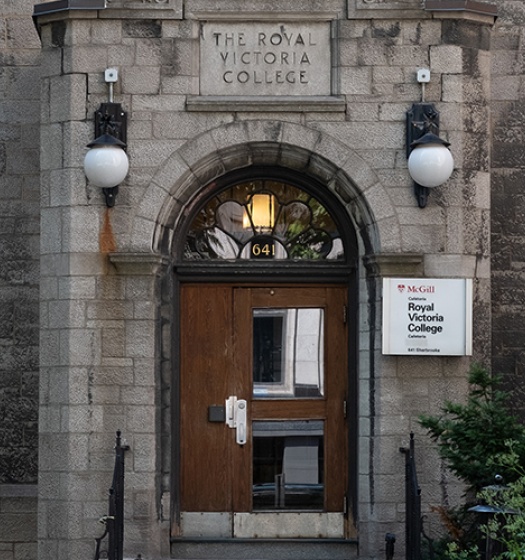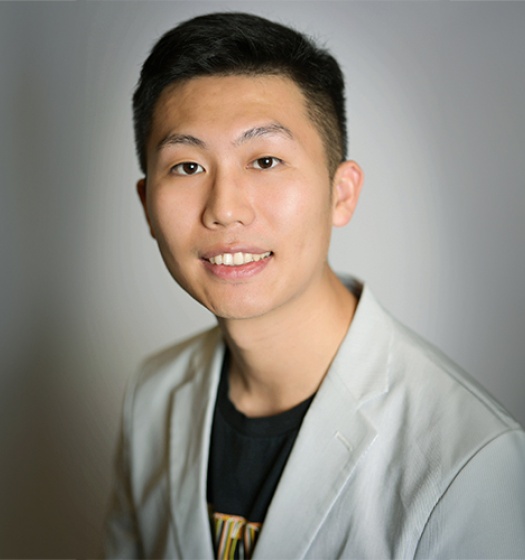The telegram that arrived the morning after Joan Flood’s high school prom in 1973 got straight to the point, as telegrams invariably did.
She still remembers the exact date and has kept the message all these years – it was that meaningful.
“I opened it up and read it out,” recalls Flood, BSc’78. She had been awarded a J.W. McConnell Scholarship to McGill University, covering tuition, books and residence. Can you accept?
“I couldn’t believe it,” Flood says, laughing at the memory.
“You can tell it still excites me to tell this story today because it was completely out of the perspective of anyone in Winnipeg that you would go to another university in another city.”
Going to McGill – an idea she harboured after seeing a photo in National Geographic of a young woman walking across campus in a McGill red jacket – was also out of financial reach until she received the scholarship.
A Toronto-based physician, Flood is one of thousands of McGillians who have received a McConnell Foundation scholarship, fellowship or bursary. John Wilson McConnell, a self-made business tycoon, newspaper publisher and philanthropist, created the J.W. McConnell Family Foundation in 1937. He was a tremendous McGill benefactor, establishing a legacy of generosity at the University that continues to this day.
The McConnell Foundation stands alone as the largest single supporter of student achievement in McGill’s history. Upwards of 30,000 recipients have benefitted from McConnell Foundation student awards to date – support that has left an indelible mark on grateful alumni.
Entrepreneur and Montreal native Rubin Gruber, BSc’65, DSc’14, who was inducted into the Massachusetts Telecom Hall of Fame in 2004, received a J.W. McConnell Scholarship for four years as a math and physics student at McGill. “I could never have gone to school without it,” Gruber has said. The scholarship was part of the impetus for Gruber launching his own bursary at McGill in 1997, which has benefitted hundreds of students. He also established summer undergraduate research awards in the faculties of Science and Engineering.
A. David Pelletier, BSc’72, who earned an honours degree in mathematics at McGill, says the McConnell Scholarship was a huge help financially and “also made me more aware of the importance of giving – the scholarship was helping students like me, and I was very grateful.” A retired actuary, Pelletier has funded several student awards in mathematics and science at McGill. His multi-year donation is also included in his estate plans.
For her part, Flood is making a legacy gift to McGill in her estate plans. “McGill gave me my life as I know it. McGill started me on my adult path,” says Flood.
And I am incredibly grateful to the McConnell Foundation and McGill for the changes it made in the life of that young girl who grew up in Winnipeg and wouldn’t have otherwise had that opportunity.”

‘Incredible feel’ for the culture of Montreal and Quebec
Flood earned a Bachelor of Science in physiology at McGill. The affection she feels for her time at the University is palpable when she reminisces. She lived at Royal Victoria College and “from the minute I walked in the door, I was just thrilled to be there,” says Flood, who still has close friends from the student residence.
“I really hit the ground running. I loved it. It gave me a whole perspective – a much broader perspective of Canada than I had received growing up in Manitoba.” She discovered the beauty of Montreal, learned to speak French at McGill, and developed this “incredible feel for the culture of Montreal and the province of Quebec,” Flood says.
“My time at McGill doing that science degree I think it was so life changing for me in terms of the people I met, [and] the greater understanding I had of the world.” She got to know international students, her friends from Quebec invited her to their hometowns on weekends, and she immersed herself in Montreal life. “It was a spectacular experience for me.”
Flood went on to medical school at the University of Manitoba and became a family physician. She’s a board member of CADDRA – the Canadian ADHD Resource Alliance – and advocates for equitable care for people with attention-deficit/hyperactivity disorder in Canada.
“ADHD is not widely treated by the mental health community in Canada and yet it’s a huge issue for individuals in the country trying to obtain care,” she says. Flood has been invited to meet with the Danish government this spring “because they’re trying to find better ways of managing this in their health care system.”
Pathway to pursue research goals
The impact of the McConnell Foundation student awards continues to reverberate on McGill’s campuses.
“The Scholarships & Student Aid team has the privilege of administering entrance scholarships and need-based bursaries supported by the McConnell Foundation,” says Cara Piperni, Director of Scholarships & Student Aid at McGill. “The number of exceptional students we have been able to attract to the University, and the number of students with financial barriers whom we’ve been able to support is an unparalleled order of magnitude. There are no adequate words to describe the impact of the McConnell scholarships, bursaries and awards across so many decades. On behalf of the deserving students we serve, we’re so grateful,” Piperni added.
Tuo Chen, MEng’20, PhD’23, earned his master’s and doctorate in mining engineering at McGill and is now a postdoctoral researcher at the University. He received full funding from McGill for his doctoral studies, including a J.W. McConnell Memorial Fellowship as a primary source. It played a pivotal role in his focused pursuit of his PhD at McGill, says Chen who is from China. “Thanks to the funding, I had the ability to pursue my research goals without having to think about the financial aspect.”

His research focuses on trying to make mining more sustainable by relying less on rock blasting, which generates a lot of toxic fumes, flying rocks and gases, Chen says. He travelled to Ontario and Northern Quebec several times to do field tests with the technology he developed in his PhD thesis. He and his doctoral supervisor, McGill Engineering Professor Hani Mitri, have published four journal papers together about developing a sustainable chemical rock fracturing agent that is much more environmentally friendly and safer than using traditional explosives.
“Right now, the globe is in a critical transition phase to green energy. Mining is becoming increasingly important for supplying all the minerals to support this energy transition,” explains Chen, who hopes to work in academia and continue to contribute to sustainable mining research.
Rachael Osagie, a doctoral student in the Faculty of Dental Medicine and Oral Health Sciences, also received a J.W. McConnell Memorial Fellowship. Osagie trained as a dentist in her native Nigeria with a specialty in oral medicine, the branch of dentistry that manages medical-related problems that have orofacial manifestations. She immigrated to Canada with her family in 2019 and is in the second year of her PhD, researching the genetics of acute to chronic back pain transition.

“It's been found that most of the conditions under chronic pain have similar underlying genetic mechanisms. So, whether occurring in the temporomandibular joint, which is a joint in the head and neck, or at the back, the shoulders or the knee, they seem to be having similar genetic overlapping mechanisms. That's why it's really interesting, knowing that findings from the head and neck can also help or influence the findings we have in other parts of the body,” Osagie says.
Aside from the fact that the J.W. McConnell award has helped her financially, for Osagie it’s also a point of pride. “I'm proud to be one of the recipients,” she says. “I'm grateful as well.”

